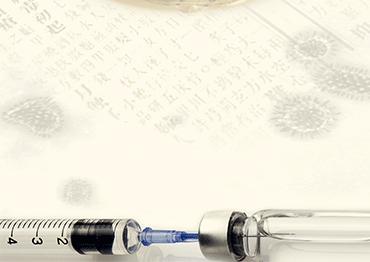Zhang Yu (pseudonym) is a doctor in an ICU department at a grade-two hospital in Henan Province. He told our reporter that doctors in his department prescribe Xingnaojing when patients are hospitalized because of brain disease, including hemorrhage, vascular disease and carbon monoxide poisoning.
Zhang said that before he uses Xingnaojing, he obtains consent from a patient’s relative because it is not cheap. One or two boxes of Xingnaojing are usually used for hospitalized patients each day at a cost of 200 to 300 yuan (US$29-43). The patient often has to use the drug for 15 days. Zhang said that he is still unconvinced of the medication’s efficacy. If he uses it, it is mostly because he is out of other options.
“To be frank, I don’t think it would make any difference if a patient is in a coma. What’s more, there are no authoritative institutions or data to explain how many patients actually wake up [after using Xingnaojing],” Zhang said. He added that now he tries to not use medications that do not have clear and definite effects. “When patients come to hospital, doctors have to do something and maybe it [Xingnaojing] will be effective,” he said.
Xingnaojing hit the Chinese market in 1978. According to a specialist consensus on the clinical application of Xingnaojing for terminally-ill patients, published by the Chinese Research Hospital Association, Xingnaojing is applicable to diseases including coma, high fever and acute poisoning caused by stroke, epilepsy and brain trauma.
According to the diagnosis and treatment guidelines on acute ischemic stroke released by the Chinese Medical Association in 2018, herbal injections are widely used in China for the treatment of strokes, but their medical efficacy needs more high-quality randomized controlled trials.
In 2008, Wu Bo and Liu Ming, two professors of neurology at the West China Hospital of Sichuan University conducted research on the effectiveness and safety of Xingnaojing on cerebral hemorrhages, finding that from 1997 to 2007, only 13 randomized controlled trials were up to standard, but 12 of them did not specify which randomized methods had been adopted.
Qin Weixing (pseudonym), a doctor in the neurology department of the Peking Union Medical College Hospital (PUMCH) in Beijing, told NewsChina that his hospital has not used Xingnaojing for a decade.
“Xingnaojing has not proved its medical effects in line with internationally recognized methods. PUMCH has extensive contacts with hospitals overseas and if we continue to use Xingnaojing, we may have problems in international communication,” he said. “We abandoned Xingnaojing, however, mainly because of its lack of randomized controlled clinical experiments to prove its efficacy.”
A Chinese-American doctor working at a specialist neurology hospital in the US told NewsChina that no patented Chinese drugs are used in the US. When treating patients who have suffered a stroke, for example, the standard treatment is rehabilitation to prevent further strokes and complications.
Zou Zhenlei, a technician at the drug evaluation center of the China Food and Drug Administration, analyzed 30 cases of patients suffering from adverse reactions after using Xingnaojing. Zou found that 70 percent of patients had an adverse reaction within 30 minutes after it was administered, and 60 percent of adverse reactions are systemic body damage caused by allergy and allergic shock. The findings were published in the Chinese Journal of Pharmacovigilance in 2014.
In March 2015, the China Food and Drug Administration required all pharmaceutical enterprises producing Xingnaojing to add warnings about possible side effects. The new instructions said Xingnaojing’s adverse reactions include allergic shock and should only be used at medical institutions that have ICU facilities. In addition, adverse reactions can affect the cardiovascular and respiratory systems and cause skin problems.

 Old Version
Old Version